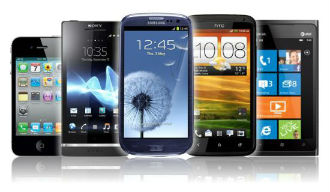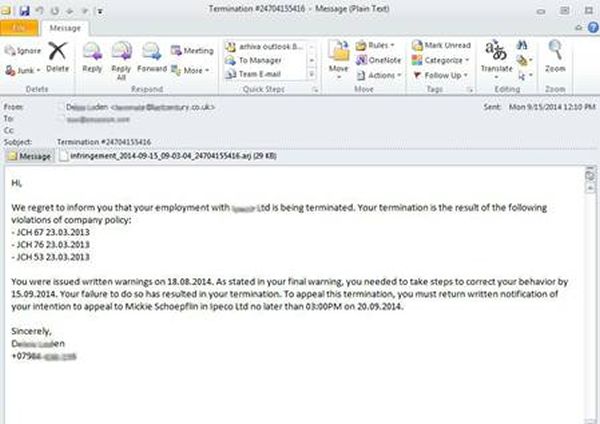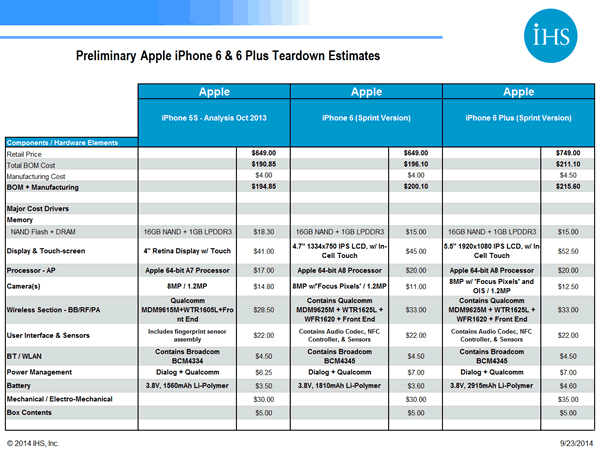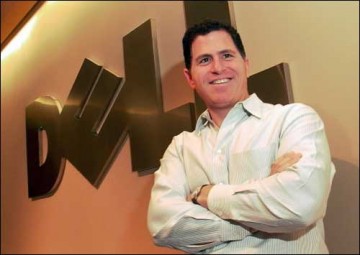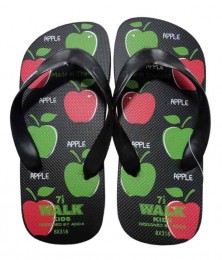 If you want to see how Apple’s control of the US trade press is distorting reviews and facts about its products you do not have to look much further than the reviews for the fruity cargo cult’s Fablet.
If you want to see how Apple’s control of the US trade press is distorting reviews and facts about its products you do not have to look much further than the reviews for the fruity cargo cult’s Fablet.
When Flablets first started appearing, Apple made a big thing about how bad they were, and the Tame Apple Press automatically rubbished them. Despite this they were a huge success, and Apple was forced to copy its rivals and produce one.
Has the Tame Apple Press stuck to its guns and said that Fablets are rubbish? Er no, they have just contradicted their previous views because Apple now tells them to say something different.
Tech Crunch’s Darrell Etherington wrote this week that “The additional size makes for a less ‘perfect’ ergonomic quality, something the iPhone 6 definitely achieves, but there’s still lots to love about the industrial design of the 6 Plus … For most tasks, I find the iPhone 6 Plus to be a two-handed device – but I also find that I’m absolutely fine with that.”
But this is the same magazine that wrote about the Galaxy Note: “Unfortunately, you might look a little crazy with that huge thing up to your face. I found that it was really difficult to get comfortable with the device, never feeling like I had complete control over it as I would with a smaller phone.”
What is the difference? Tech Crunch’s favourite company now makes Phablets so anything it said in the past is officially rubbish.
Josh Geller, from BGR, wrote this week that “Apple has finally taken the wraps off the iPhone 6 and the iPhone 6 Plus, and Apple fans are going crazy with anticipation over the largest iPhones ever released, something needs to be said. And that something is, “Thank you, Samsung.” We got it wrong.”
At least he admits he got it wrong, but what was Geller thinking when he wrote this: “The most useless device I’ve ever seen … This is a phone, after using it for a few hours, that feels like it is too big to be taken seriously. That’s the end of it. I don’t care if you like large screens on mobile devices, I don’t care if you love Android, and I don’t care if you love 4G LTE — this is a device fit for use only by such a small subset of the human population that I can’t fathom how AT&T and Samsung are putting so much marketing resources behind it.”
Lauren Goode at the Wall Street Journal admits that she is biased toward Apple and will say whatever the cargo cult put out is great.
“Maybe I’m getting old, and my eyes are getting worse. Or maybe I’m stuck in Apple’s reality-distortion field (help). But something strange happened this week. I started to like a phablet.”
This is the same writer who told us “It’s still too big for a smartphone … After testing it over the past week and a half, the awkwardness that came with carrying such a large, “notice me” phone outweighed the benefits of it, for me.”
The New York Times’ David Pogue was clearly trying to get back into Apple’s good books when he wrote “The iPhone 6 and iPhone 6 Plus are absolutely terrific phones. They’re fast and powerful and well designed. There’s not a single component that hasn’t been improved. These phones are a delight to behold and to be held.”
This is the same numpty who said about the Samsung Phablet that its “sheer size basically makes one-handed operation impossible. Samsung’s given the Note 3 an entire settings menu dedicated to trying to make it easier to use one-handed, but even with my adult male-sized hands it’s a struggle to reach even half of the screen without dropping the device.”
For some reason his “adult hands” do not drop Apple devices, just those made by a rival.
While it is mostly Amercians journalists who are keen to sacrifice their credibility to butter up Apple, the UK’s Guardian is also keen to toady up to Jobs’ Mob.
Charles Arthur wrote this week: “Too big. This thing’s too big. Waaay too big. It’s … actually, that screen is pretty nice, isn’t it? Wow, you really can get a lot of content on there, can’t you? Hey, my hand’s getting used to the size. It’s quite comfortable, isn’t it?”
However the Guardian has a strong view about other people making Phablets. Samuel Gibbs moaned that the sheer size of the device basically makes one-handed operation impossible. Samsung’s given the Note 3 an entire settings menu dedicated to trying to make it easier to use one-handed, but even with my adult male-sized hands it’s a struggle to reach even half of the screen without dropping the device.”
What a difference two years makes, and the fact that the outfit is your favourite toymaker.
It seems that the trade press has gone a long way since we had to send back bottles of whisky from suppliers at Christmas because they represented low-level bribery. Instead, it is clear that trade journalists are Apple’s glove puppets and no longer can be relied on to tell you the truth.
 Not satisfied with releasing an expensive phone which bends if you stick it in your pocket, Apple has botched an update to its brand new iOS 8 operating system.
Not satisfied with releasing an expensive phone which bends if you stick it in your pocket, Apple has botched an update to its brand new iOS 8 operating system.






